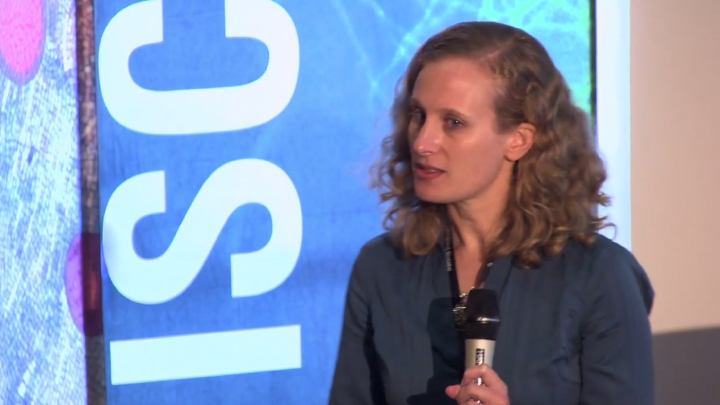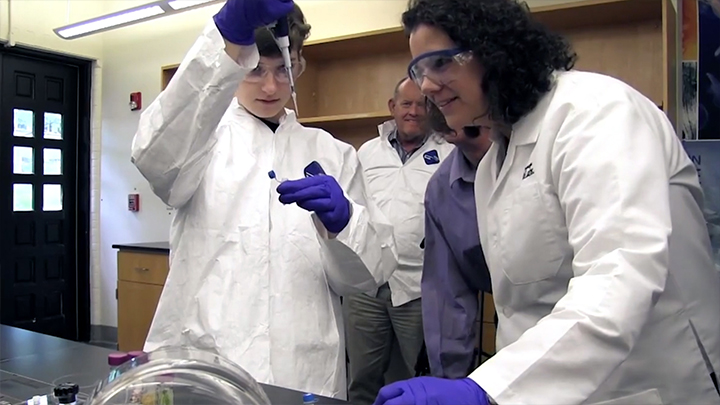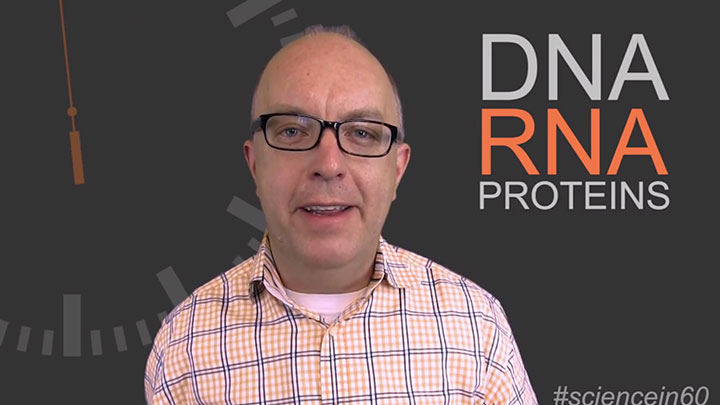NEB® TV Ep. 5 – Careers in Science
Script
NEB TV What's trending in Science.
Deana Martin:
Welcome to NEB TV. Today, I'm joined by Senior Scientist Andy Gardner. Hey, Andy.
Andy Gardner:
Hi, Deana. How are you?
Deana Martin:
Good.
Andy Gardner:
Good.
Deana Martin:
We are talking about careers in science. In our Science in 60" segment, Andy is going to tell us about the molecular biology summer workshop, which is hosted by NEB, and Smith College. Then, we will talk to some of NEB scientists and Human Resource Department, to provide you with some tips for your career search, and lastly, we're interviewing an NEB employee who has a science background, but has chosen an alternative career in the field. Are you ready?
Andy Gardner:
I'm ready.
Deana Martin:
Great.
Andy Gardner:
Over the past 30 years New England Biolabs has sponsored a two week summer workshop to learn molecular biology. We have trained over 3000 students from all over the world, and backgrounds, including artists, bankers, corporate executives, medical doctors, sales people, computer scientists, teachers, and writers.
Andy Gardner:
Even though most students that have come to the workshop don't have scientific backgrounds, they share a common belief that molecular biology is important for many fields in an every day life. One of the core values of the scientific workshop, and at New England Biolabs, is that we learn by doing.
Andy Gardner:
Let's face it, learning PCR by reading a textbook, is almost impossible. I didn't understand, and appreciate PCR until I did it in the lab.
Therefore, the summer workshop is very hands-on. In fact, almost immediately after arriving, students are handed a pipette to begin experiments. Unfortunately, at the start of the workshop, most students don't know which end is up. However, over the next two weeks, students learn about DNA, RNA, and proteins. Ah, and learn core molecular biology techniques.
Students rapidly progress from not knowing which end of the pipette is up, to being able to complete a next generation sequencing, RNA-Seq experiment to analyze gene expression.
In the workshop, there are always a moment when the students are able to integrate all the material into their own lives, and careers. It is the moment when a computer scientist understands the biological questions posed by collaborators. It's the moment when a sales manager can now empathize with customers struggling in the lab. When a lawyer understands the functions of enzymes, and legal contracts, and licenses that she writes. It's the moment when a physician adds molecular perspectives to her clinical studies, and when a teacher realizes that he now has the tools to pass molecular biology on to the next generation.
I hope the Molecular Biology Summer Workshop educates, and inspires students to use molecular biology to generate the next breakthroughs that will impact us all. Sorry.
Kelly Schermerhorn.:
I know that a lot of people use LinkedIn to post their jobs, and so it gives you kind of direct contact to the hiring scientist. I think it's a good way to see what's out there, see who you may know, and who can help you. I think people are usually willing to help others find a job, so I think LinkedIn is a great resource.
Ben Barone:
I use LinkedIn to look at the connections I had for my alma mater.
Kelly Schermerhorn.:
If you're in school, your career center, and those sorts of resources can definitely help.
Andrew Gray:
In my case, that was a particularly strong resource, and I know of other people at other institutions who make good use of their career services.
It started with a phone interview, which was mostly just kind of ... It was one-on-one between me and the hiring manager, and just her getting a sense for me, for my background, and a few typical behavioral interview questions.
Tony Kingston:
My job interview started with an hour long research talk where I presented my graduate research.
Kelly Schermerhorn.:
If you were looking for a postdoc position, or a scientist position, you give a presentation. Usually, in front of maybe 15 to 20 people. After that, I think I interviewed with around six scientists.
Andrew Gray:
And then, a meeting with the hiring manager, and then individual meetings with everyone in the team. I think looking through some of the various online resources of typical, behavioral interview questions, you can get a sense of the kinds of questions you're going to get.
Kelly Schermerhorn.:
Can you name a time when you were innovative, or can you name a situation where something went wrong, and you had to figure out a way to remedy that situation, or can you think of a time when you had to work with a difficult colleague? How did you handle that situation?
Tony Kingston:
What do you intend to do five years from now, or what do you hope to get out of this job?
Andrew Gray:
Talk about a time that you've made a mistake, and that's tricky, because everyone makes mistakes. What you really need to think of very quickly in a situation like that, is what the follow-up question to name a time that you've made a mistake is, because it's easy to say when you've made a mistake. What's more difficult is saying, "How did you learn from that mistake? How did you correct that mistake?"
Ben Barone:
Because I was looking for a job that was outside of the lab, I pursued a role as a sales representative, and in the interview process, it was very much about being able to speak the language of science, and how I could adapt that to a conversation to be consultative to my customers.
Tony Kingston:
Any researchers who are looking for a job, should first and foremost make sure to network, to contact anyone they can think of that could help them get a job. Just go into conferences, and talking to people goes a long way.
Andrew Gray:
Before your interview, ideally even before a phone interview, to learn as much as you can about the company.
Ben Barone:
Look at the actual companies websites, or the universities page to find out more information about the environment, the culture, and more specifics about how that company participates in the scientific industry.
Tony Kingston:
When putting together a resume, I think it's very important to tailor a resume to a specific job. Make sure you highlight the skills you have that are most relevant to the job first, and make sure you write a very personal cover letter that is very clear that you didn't just copy, and paste it.
Ben Barone:
I think it's important that you express your acumen in science, but also make sure the resume is specific for the role. For me, being in sales, you have to be very metric-driven, so you had to be able to show your achievement through the numbers, but also show your achievement through selling, maybe a more complex application in the scientific realm, because the company is looking for someone with that level of expertise.
Kelly Schermerhorn .:
Not even here at NEB, but anywhere, I think it's also important that you interview where you're going, you want to ask questions, is this the right place for you? Are you going to fit in well? Is this really what you want? I know a lot of times graduate students just want to get out of school, and they really want to get a job, but I think it's really important that you're also happy with where you end up.
Linda Stecchi:
Interested candidates can find all of our job openings online under our career section at NEB.com. We also post a large majority of our postings at massbio.org, and many association websites.
If you're interested in applying for one of our job openings, please go online, complete an online application, and submit a cover letter, and a resume.
Tasha Jose:
Hi, I'm Tasha Jose. I'm a graphic artist here at NEB. As a Biomedical Illustrator, I take complex scientific material, and translate it into easy to understand graphics, animations, and videos that will be used in our instructional materials, and on our website.
I'm often asked how people get into medical illustration. I was lucky. I always had a passion for both art, and science, and so I was lucky to follow a career that allowed me to combined the two. Although I spend most of my day here working on the computer, I do also get to meet with scientists, and we discuss their scientific research, and comes up with the best ways to communicate that material.
If you're interested in learning more about medical illustration, or perhaps even pursuing a career in it, I suggest you start with the Association of Medical Illustrators website at ami.org.
Deana Martin:
Andy, you failed at the 60 second segment today.
Andy Gardner:
I'm sorry. It was close.
Deana Martin:
It's okay. What you said was really great. Thanks so much for watching today, and if you have any suggestions for future episodes, please let us know.
Related Videos
-

GO GIRL: Promoting girls in STEM -

NEB® TV Ep. 2 - STEM Education -

Molecular Biology Summer Workshop

